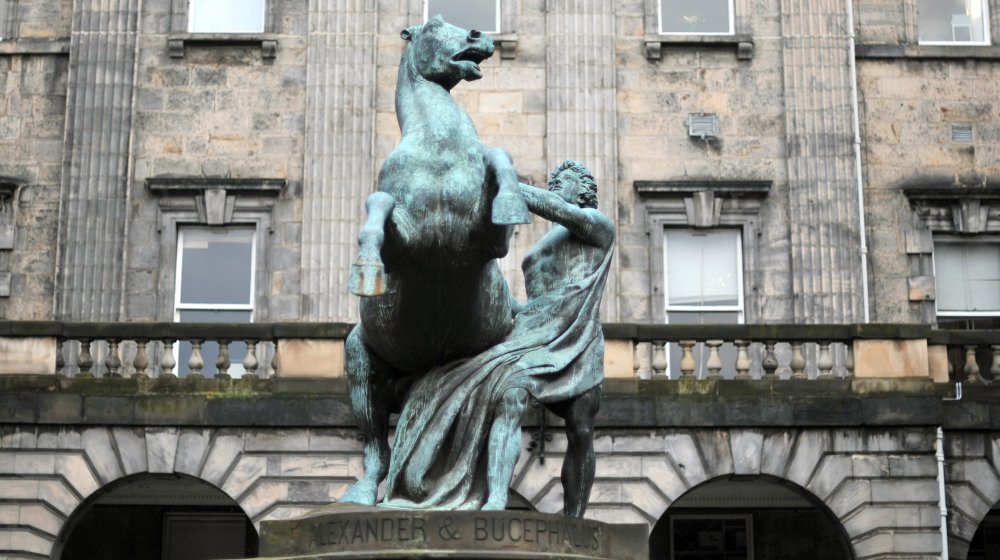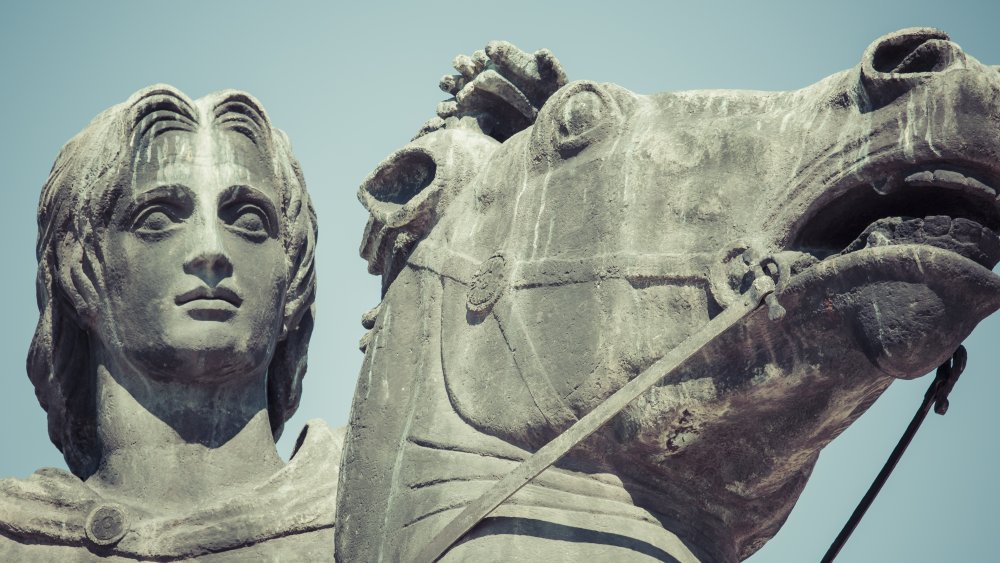The Truth About Alexander The Great's Horse, Bucephalus
Let's rip this Band-Aid off up front: Alexander the Great's horse was named Bucephalus, and no, his name didn't mean anything that you're imagining. Yes, it's a funny name. Yes, it conjures images of teenagers, drastically mis-placed in AP history classes, snorting and mumbling about "hopping on Bucephalus" and "taking old Bucephalus for a ride." But we're adults. Let's be adults.
Roughly 2,300 years after moving on to that Great Pasture in the Sky, Bucephalus remains one of those mighty few dead horses that people still care about, arguably accompanied by Trigger, Seabiscuit, and, when you consider the lifespan of an average equine, every My Little Pony from the '90s. Two millennia later, what do we know about the horse that carried Alexander of Macedon during the Battle of Issus, the Battle of Hydaspes, and, at some point, probably a couple of late-night grocery runs?
Look upon Bucephalus: Hay was for him
Bucephalus is known today through folklore, poetry, and legend, and stories about his primal glory have a slight ring of make-up to them. According to Plutarch's retelling, the Thessalian steed was initially presented to King Phillip, but was considered untamable by the royal court. He was too wild. Too powerful. Too metal.
Enter a 13-year old Alexander, who, having witnessed the King's horse-snubbery, basically called the royal animal handlers a bunch of babies and offered to pay for the pony if he couldn't tame it himself. A few minutes later, everyone was cheering the young man as he rode a previously uncontrollable horse around the arena, and the King proclaimed "look thee out a kingdom equal to and worthy of thyself, for Macedonia is too little for thee."
To sum up, young Alexander tamed a wild stallion, everyone clapped, and the King said "you're even cooler than my kingdom, bro," in history's first ever instance of #thattotallyhappened.
With this story as a bellwether, it's easy to understand that hard and true facts about Bucephalus are a little hard to come by. He reportedly died at age 30, or roughly 180 in horse years. He was also said to be more powerful than Pegasus. Given the opportunity, it seems plausible that some Greek scribe would have claimed that he was pretty good with a bo staff. Celebrity's agents have been praising their client's pets for thousands of years, why should Alexander's horse be any different.
When Bucephalus finally did die, Alexander was apparently so heartbroken that he named a whole city after the animal, which the town's inhabitants probably weren't thrilled about, but then again, maybe it was just nice not to have your hometown named after Alexander for once. Variety is the spice of life.
Also, the name "Bucephalus" comes from the Greek for "ox head," which was what the brand on Alexander's horse's flank looked like. Stop laughing.

